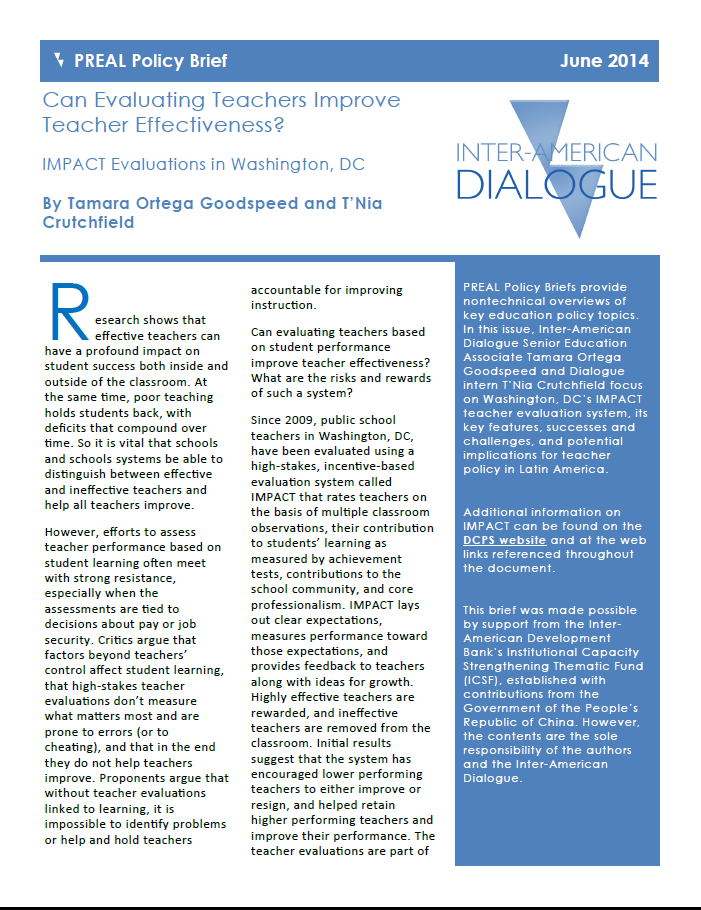Can Evaluating Teachers Improve Teacher Effectiveness? : IMPACT Evaluations in Washington, DC
Abstract
Research shows that effective teachers can have a profound impact on student success both inside and outside of the classroom. At the same time, poor teaching holds students back, with deficits that compound over time. So it is vital that schools and schools systems be able to distinguish between effective and ineffective teachers and help all teachers improve. However, efforts to assess teacher performance based on student learning often meet with strong resistance, especially when the assessments are tied to decisions about pay or job security. Critics argue that factors beyond teachers’ control affect student learning, that high-stakes teacher evaluations don’t measure what matters most and are prone to errors (or to cheating), and that in the end they do not help teachers improve. Proponents argue that without teacher evaluations linked to learning, it is impossible to identify problems or help and hold teachers accountable for improving instruction. This brief highlights key features of the DC teacher evaluation system, summarizes its successes and challenges, and draws potential implications for teacher policy in Latin America.

